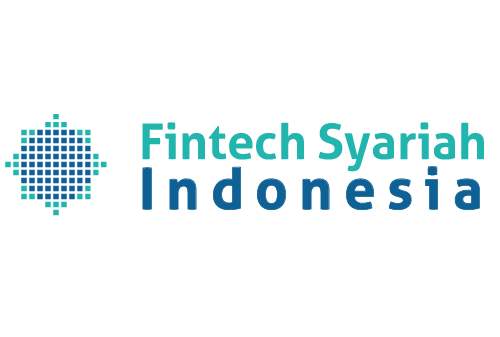Analisis Model Kolaborasi Entitas Bisnis Dan Pesantren Dalam Pengelolaan Unit Usaha
Keywords:
business entities, business units, collaboration management, islamic boarding schoolsAbstract
Economic development around the Darul Quran Mulia Islamic Boarding School is growing rapidly, but as an educational institution, of course, it should not only focus on education, but must also focus on economic management from the business perspective. This study aims to examine the roles and efforts that can be carried out by the Darul Quran Mulia Islamic Boarding School in managing the business units it owns. This research is a field research with a descriptive qualitative approach. The primary data sources in this study were PT. Berkah Group and employees of the Darul Quran Mulia foundation. Secondary data sources are documentation of the Darul Quran Mulia Islamic Boarding School and books and journals that discuss the economics of Islamic boarding schools. The analytical method uses interviews and documentation with qualitative descriptive data analysis techniques using inductive thinking patterns. The results of this study indicate that the Darul Quran Mulia Islamic boarding school operates a collaboration model with PT. Berkah Group in managing business units, in this case the Darul Quran Mulia Islamic boarding school acts as a customer while PT. Berkah Group serves as a service providerReferences
Abdulsyani. (1994). Sosiologi : skematika, teori dan terapan. Bumi Aksara.
Azizah, S. N. (2014). Pengelolaan Unit Usaha Pesantren Berbasis Ekoproteksi. EKBISI: JURNAL ILMIAH FAKULTAS SYARIAH DAN HUKUM UIN SUNAN KALIJAGA YOGYAKARTA, 9.
Cahyo, D. I. (2021). Etika Bisnis Unit Usaha Pesantren (Studi Kasus Pondok Pesantren Sahid Bogor dan Pondok Pesantren Ummul Qura’ Al-Islami Bogor). SALAM: JURNAL SOSIAL DAN BUDAYA SYAR-I, 8.
Halim, A., Suhartini, Arif, M., Choirul, & Sunarto, A. (2005). manajemen pesantren (A. Halim (ed.)). PT. LKiS.
Humaidi, A. (2021). Pesantren Business Entity Development As An Education Basis For The Autonomy Of Santri, Pesantren, And The Community: A Case Study At Pesantren Sidogiri Pasuruan. Didaktika Religia, 9.
Kasmir. (2013). Kewirausahaan. rajawali pers.
kemenag. (2021). Grafik Perbandingan Ekonomi Pesantren. KEMENAG. https://ditpdpontren.kemenag.go.id/pdpp/grafik
Nadzir, M. (2015). Membangun pemberdayaan ekonomi di pesantren. Economica: Jurnal Ekonomi Islam.
Nasrullah, M., Ismanto, K., & Nalim. (2018). Economic Independence Of Pesantren: The Study At Pekalongan Region. HUNAFA: Jurnal Studia Islamika, 15.
Nizar, H. S. (2013). Sejarah sosial & dinamika intelektual Pendidikan Islam di Nusantara. Kencana Prenada Media Group.
Nurjanah. (2008). Pendidikan Aswaja dan Ke-NU-an untuk MTS/SMP Kelas 7,.
Rimbawan, Y. (2012). Pesantren Dan Ekonomi: Kajian Pemberdayaan Ekonomi Pesantren Darul Falah Bendo Mungal Krian Sidoarjo Jawa Timur. http://digilib.uinsby.ac.id/8156/1/Buku 3 Fix_145.pdf
Sunbanu, H. F., Mawardi, & Wardani, K. W. (2019). PENINGKATAN KETERAMPILAN KOLABORASI SISWA MENGGUNAKAN MODEL PEMBELAJARAN KOOPERATIF TWO STAY TWO STRAY DI SEKOLAH DASAR. BASICEDU, 3. https://doi.org/https://doi.org/10.31004/basicedu.v3i4.260
Wirdyarto, W. galuh. (2017). ANALISIS DESKRIPTIF: KERJASAMA ANTARA KONSELOR DENGAN GURU BIDANG STUDI. Journal Nusantara, 4.
Yusuf, C. F., & Suwito. (2010). Model Pengembangan Ekonomi Pesantren (cet 1). STAIN Purwokerto Press.
Downloads
Published
How to Cite
Issue
Section
License
Copyright (c) 2023 Islamic Economics and Business Review

This work is licensed under a Creative Commons Attribution 4.0 International License.
Authors who publish with this journal agree to the following terms:
- Authors retain copyright and grant the journal right of first publication with the work simultaneously licensed under a Creative Commons Attribution 4.0 International License that allows others to share the work with an acknowledgment of the work's authorship and initial publication in this journal.
- Authors can enter into separate, additional contractual arrangements for the non-exclusive distribution of the journal's published version of the work (e.g., post it to an institutional repository or publish it in a book), with an acknowledgment of its initial publication in this journal.
- Authors are permitted and encouraged to post their work online (e.g., in institutional repositories or on their website) before and during the submission process, as it can lead to productive exchanges, as well as earlier and greater citation of published work.

This work is licensed under a Creative Commons Attribution 4.0 International License.











